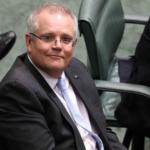Should the Identity of the Alleged Parliament House Sexual Assailant Be Made Public?

A fifth woman is reported to have come forward alleging that the same man accused of sexually assaulting Brittany Higgins and three other women, and sexually harassing a fourth woman, also sexually assaulted her.
As the allegations continue to mount, many are now wondering why the man has not been identified. It’s understood that some newspapers are aware of the man’s name, but have decided not to publish it on legal grounds.
The man himself is reported to have checked into a private clinic in Sydney and that he was recently let go from his job. However, his former employer has refused to comment further, nor would the employer say whether female employees at the organisation have made any complaints about the man.
What’s known from those who knew this alleged offender from his days working in Parliament House, is that he was described as highly ambitious, but not a ‘nice person’.
He began working at Parliament House in 2014 as a staff member for a coalition backbencher and worked his way up the ranks, ending up in the office of Senator Linda Reynolds. He was sacked four days after the alleged sexual assault on Brittany Higgins in 2019, but he was fired for breaching security.
Brittany Higgins’ partner, David Sharaz has been supporting Ms Higgins since her allegations were made public, rocking the halls of power, but has recently made the decision to quit his own job, as he believes his presence could jeopardise the company, which relies on signing deals with the Morrison government.
Mr Sharaz was a former press gallery journalist before joining a media analytics company which he has now resigned from. The Morrison government has been accused of a “backgrounding” campaign, telling journalists privately that Sharaz had an axe to grind against the Liberals.
There’s a lot to unravel here. The investigation by the Australian Federal Police is now underway, which will hopefully lead to justice for these women.
Prime Minister Scott Morrison has instigated four separate inquiries into complaints processes and workplace culture as a result of the incident.
What the Liberal Party must avoid, is any narrative that suggests the man who now stands accused by five women is not simply ‘one bad apple’ in an otherwise good bunch.
It would be a mistake not to take this opportunity to tackle workplace sexual harassment in goveernment head on, particularly since all political parties have been faced with allegations of sexual harrassment, sexual misconduct, and sexual discrimination in recent years.
Calls to bring in Commissioner Jenkins
There have also been calls for the Morrison Government to appoint Sex Discrimination commissioner Kate Jenkins to help political parties to deal with the issue.
Commissioner Jenkins headed up the Australian Human Rights Commission’s landmark inquiry into sexual harassment in Australian workplaces, which delivered it’s findings last year.
The inquiry found that sexual harassment is both ‘prevalent and pervasive’ in Australian workplaces, women are by far the majority of victims, and current laws are ‘not fit for purpose’ to deal with the problem.’
Commissioner Jenkins found the current laws too complex and confusing for victims to navigate properly and that they created a heavy burden on victims to make a complaint.
In her final report, Commissioner Jenkins made 55 recommendations for change in order to address the problem, including legal reform to avoid ambiguity across Australia’s States and Territories, and improved support, advice and advocacy systems for people experiencing sexual harassment.
Commissioner Jenkins also recommended that the liability for sexual harassment be extended to those who “aid or permit” another person to sexually harass a person.
The time for change is now
While the Federal Government is yet to adopt any of these recommendations, it would be a wise move putting Commissioner Jenkins in charge of overseeing much-needed changes within our political parties to end the ‘boys’ club’ culture and power imbalances that potentially not only stop women from rising to the top, but make them vulnerable to unwanted advances by male colleagues.
Pressure is on the Morrison Government to deal with this issue quickly, and effectively, and to set a standard that other industries can aspire to.
Despite #Metoo, Australia is lagging the world when it comes to implementing successful initiatives to deal with the problem of sexual harassment in the workplace, and yet it continues to cost employers and the economy millions of dollars every year in employee churn, and it must not be overlooked that it takes a devastating toll on victims that can last for decades.







